In the last part of this delightful conversation, world renowned couple, Rodney Yee and Colleen Saidman reflects on their collaboration with Urban Zen Foundation, current health care systems, and how they feel about Costa Rica. Urban Zen is an NGO with a focus to change the current health care paradigm, founded by Donna Karan, an American fashion designer. To read the first part of this conversation please click here, and for the second part, please visit here.
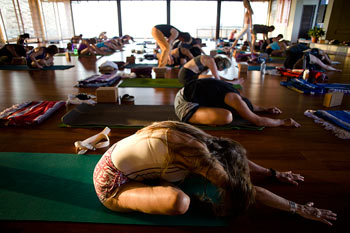
|
|
VON: Tell us about the Urban Zen Foundation. How did Donna Karan approach you?
CS: We both have been teaching Donna for years. And her husband, Steven, was very ill for, over seven years. And she was already very well versed in the practice of yoga with oils and healing touch. She had a lot of people around her that administered this sort of eastern kind of modalities that complemented Steven’s long struggle. After he died, she just felt like everybody should have access to all the other things that made him so much more comfortable. And before Steven died he asked that Donna “please, take care of the nurses!” He said that they are exhausted and they are angels. So Donna was asking, at a dinner table, “How can we help these nurses,” you know, “What are we going to do?” Everybody needs to have access to somebody who is going into the hospital room and not taking their blood pressure or taking blood or you know coming in there with an agenda. And Rodney said “We should just use the yoga community.” They are already in service. They already have the idea of compassion. And they already have a lot of the tools. So we incorporated the Yoga for Allied Health Care Professionals. And we got about 85 that ended up graduating. And we taught them too. It was a long and arduous year in all the different modalities, yoga therapy, aroma therapy, reiki, contemplative care. |
| |
|
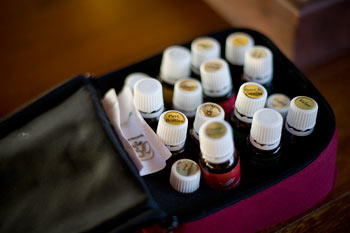
|
|
| |
|
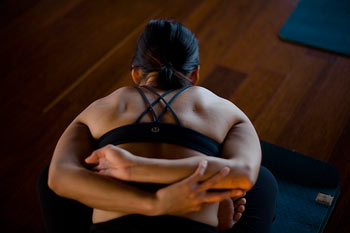 |
|
VON: What are your thoughts about the current western medicine system in contrast to the concept of treating the patients, not just the diseases, that the Urban Zen Foundation follows?
RY: We all think that it is an amazing system for certain things. Like it is great for acute care, you know, if you break the leg, if you have cancer, you want to be treated in the western method. But there are certain things that they don’t take care of. They don’t teach the patients meditation so that they can start dealing with their pain in a different way than just taking pain pills. They don’t teach people how to do movements in bed to encourage digestion. They are not doing really basic things for taking care of the patient. So this is where we feel like we have to supplement what is going on in western care. And also western care needs to expand its view. Like where is acupuncture? Where is Chinese medicine? Where is ayurvedic medicine? You know there are long traditions of treating people in different ways. Like let’s not keep a closed hut and say this is medicine. No. I mean, this is good medicine but let’s open the door.
CS: The thing is I think the nurses originally came into the profession because they did care and they wanted to care for the patient and for the whole person. But just because of the sheer number of patients they have to look after in a day, they don’t have the time to do that anymore. I think it is just as frustrating for them as it is for us and for the patients to see how the system has gone that way, that the nurses and doctors are burned out. They are exhausted.
RY: It is funny, right? Everybody talks about this system as being “they.” But really it is a weird occurrence. All of a sudden there is this thing that is going on. It is moving along and it creates this specific thing but then all of a sudden this other stuff is left behind. It is like “Hey! Let’s wake up! This is us. It is not them, they.” We need a better, more holistic health care system.
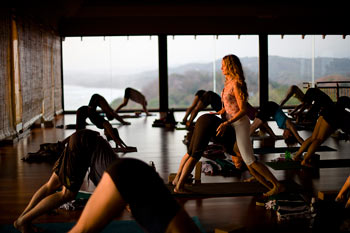
|
|
VON: You think it is like that only in the States?
RY: I think the United States is getting behind time now. I think places like Costa Rica, Cuba, Mexico, they have way more receptivity to mixing. I think the United States is, we know the numbers now, it is like 13th, instead of number one. It spends the most money and yet it is 13th in the world so far.
CS: I don’t think it goes that high. I thought it was lower than that. |
RY: Well, it is like 13th out of 14.
CS: Oh, 13 out of 14. Yea, that’s pretty bad.
RY: It is 13 in the sense that they don’t group all the nations together. All the nations are not in the study. It is more like post-industrial nations that have similar economic structure.
CS: We keep hearing how good the health care system is down here or just the health care not the system.
CS: I think health care is just masking the symptoms, giving drugs to mask systems.
VON: Have you ever done any other work with other NGOs?
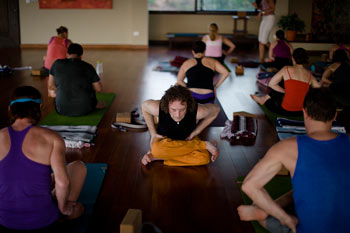
|
|
CS: I worked with the Missionaries of Charity both in New York and in Calcutta.
RY: We’ve all done different things. We’ve taught at different places. We’ve taught at prisons, at schools. So far as NGO, support… a lot comes through Donna Karan’s foundation, a lot of our work. Even though we are sort of doing the Urban Zen, really Donna calls up and says “Hey, we are doing something for Haiti tomorrow,” or you know, “We are doing something for the Tibet House. Can you teach a class? Dalai Lama is coming.” |
CS: We are trying to focus our energy now actually. We can’t do everything for everybody. So we need to stay focused on the Urban Zen right now and our children and my yoga studio and each other.
VON: There are several local non-governmental organizations here in Nosara. Would you be interested working with them at one point?
RY: I think the best way we could do that is just to for a certain group of people offer them to come to our classes. Cuz we have so little time down here and it is really directed to people that we are on retreat. But we really like to open our arms to you know if there is someone who can’t afford classes or someone from an organization that would like to benefit from our classes, then we can offer that up.
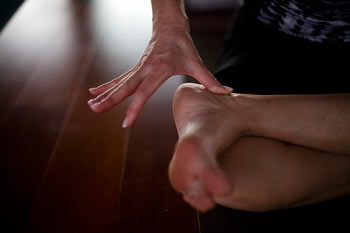
|
|
CS: We let a lot of people take the class this week.
VON: Anything that you would like to add before ending this conversation?
CS: We love Costa Rica. We are coming back next month with our children for holiday. No teaching. (Laughs)
VON: Are you going to be visiting this area?
CS: Playa Guiones. Yea. It is fun for teenage girls. We are bringing seven teenage girls. |
VON: That’s gonna be fun?
CS: Yea. Maybe. (Laughs) There are too many good looking guys down there. That’s my worry. (They both laugh)
VON: Thank you!
CS: Thanks.
RY: Thanks.
INTERVIEW HAS BEEN CONDENSED AND EDITED. |
| |
More Health News
An All-Inclusive Interview With Rodney Yee and Colleen Saidman
Part 2
VON: I would like to talk with you about gender roles in yoga practices. I don’t personally practice yoga but I have read that many men are hesitant to practice yoga because of gender roles and the fear that comes with it. What do you think about this? More >
An All-Inclusive Interview With Rodney Yee and Colleen Saidman
Part 1
There are age spots, starting to appear on his hands. He is walking around slowly, instructing his students and aiding them almost one by one with the challenging postures that they are instructed to do. Her deep blue eyes hit you from minute one. An observer, too, can almost feel her tactile relationship with her students. More >
Several Ways To Maintain Your Presence
What does Nosara mean to you? To some, it might be surfing. Or maybe it's just a quiet vacation town to visit. Whatever your answer is, there is an undeniable and almost inevitable presence of yoga in this area. Effects of yoga surely depend on the person. Here are some forms of yoga that we encountered with along the way. More >
Cell Phone Use Affects Brain Metabolism
Although it is yet to be determined whether it bears positive or negative health effects, recent studies show that the brain is affected by radiofrequency emissions from wireless phones. More >
FDA Considers Banning Menthol Cigarette Sales
Based on recent studies, the United States' Food and Drug Administration (FDA) is considering banning sales of menthol cigarettes. For years, these were thought to be less toxic than regular cigarettes however, Dr. Mark Clanton, member of the American Cancer Society, denies that these have lower levels of tobacco, adding that removing them from the market would greatly benefit public health. More >
The Healing Power of the Ocean
It is no secret that being near or in the ocean is one of the best antidotes to stress.We come to the sea because many of us feel a complete sense of freedom when confronted with the open sky and endless horizon. More > |
|
|
| |
|

